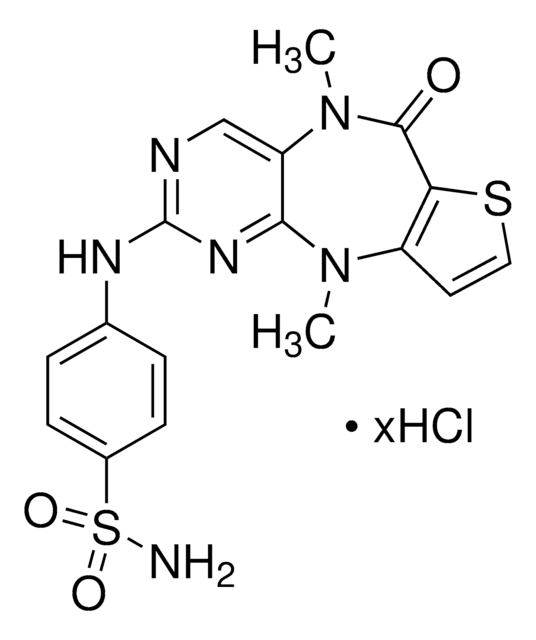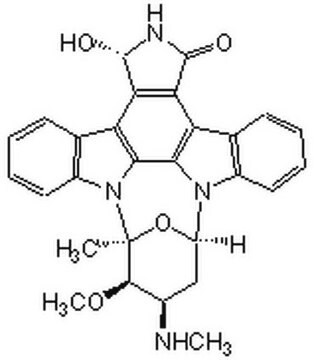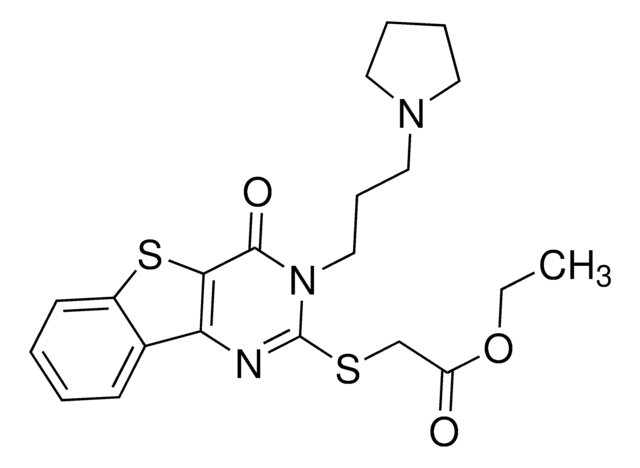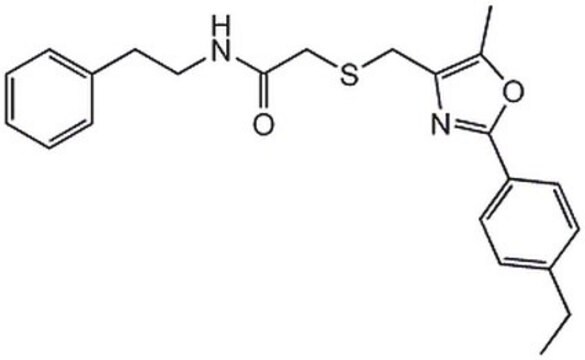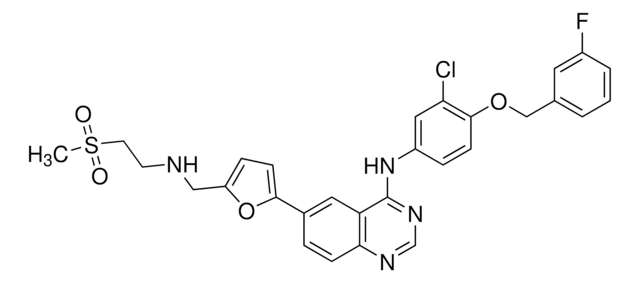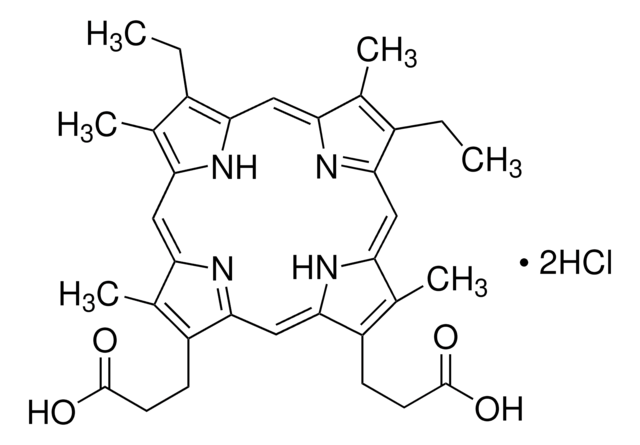SML0534
Verteporfin
≥94% (HPLC), powder, YAP-TEA domain interaction inhibitor
Sinónimos:
(4R,4aS)-rel-18-ethenyl-4,4a-dihydro-3,4-bis(methoxycarbonyl)-4a,8,14,19-tetramethyl-24H,26H-Benzo[b]porphine-9,13-dipropanoic acid monomethyl ester, Visudyne, trans-18-ethenyl-4,4a-dihydro-3,4-bis(methoxycarbonyl)-4a,8,14,19-tetramethyl-23H,25H-Benzo[b]porphine-9,13-dipropanoic acid monomethyl ester
About This Item
Productos recomendados
product name
Verteporfin, ≥94% (HPLC)
assay
≥94% (HPLC)
form
powder
storage condition
desiccated
protect from light
solubility
DMSO: 2 mg/mL, clear (warmed)
storage temp.
−20°C
SMILES string
CC(C(/C=C1[C@@]2(C)C(/C(N/1)=C/3)=CC=C(C(OC)=O)[C@H]2C(OC)=O)=N/4)=C(CCC(OC)=O)C4=C\C5=C(CCC(O)=O)C(C)=C(/C=C6C(C=C)=C(C)C3=N/6)N5.CC(C(/C=C7[C@@]8(C)C(/C(N/7)=C/9)=CC=C(C(OC)=O)[C@H]8C(OC)=O)=N/%10)=C(CCC(O)=O)C%10=C\C%11=C(CCC(OC)=O)C(C)=C(/C=C%12C(C=C)
InChI
1S/2C41H42N4O8/c1-9-23-20(2)29-17-34-27-13-10-26(39(49)52-7)38(40(50)53-8)41(27,5)35(45-34)19-30-22(4)24(11-14-36(46)47)32(44-30)18-33-25(12-15-37(48)51-6)21(3)28(43-33)16-31(23)42-29;1-9-23-20(2)29-17-34-27-13-10-26(39(49)52-7)38(40(50)53-8)41(27,5)35(45-34)19-30-22(4)25(12-15-37(48)51-6)33(44-30)18-32-24(11-14-36(46)47)21(3)28(43-32)16-31(23)42-29/h2*9-10,13,16-19,38,43,45H,1,11-12,14-15H2,2-8H3,(H,46,47)/b31-16-,32-18-,34-17-,35-19-;31-16-,33-18-,34-17-,35-19-/t2*38-,41+/m00/s1
InChI key
YHNBVDZVUQFVLS-SKJZPIBWSA-N
¿Está buscando productos similares? Visita Guía de comparación de productos
Application
Biochem/physiol Actions
Other Notes
Storage Class
11 - Combustible Solids
wgk_germany
WGK 3
flash_point_f
Not applicable
flash_point_c
Not applicable
Certificados de análisis (COA)
Busque Certificados de análisis (COA) introduciendo el número de lote del producto. Los números de lote se encuentran en la etiqueta del producto después de las palabras «Lot» o «Batch»
¿Ya tiene este producto?
Encuentre la documentación para los productos que ha comprado recientemente en la Biblioteca de documentos.
Los clientes también vieron
Contenido relacionado
DISCOVER Bioactive Small Molecules for Nitric Oxide & Cell Stress Research
Nuestro equipo de científicos tiene experiencia en todas las áreas de investigación: Ciencias de la vida, Ciencia de los materiales, Síntesis química, Cromatografía, Analítica y muchas otras.
Póngase en contacto con el Servicio técnico